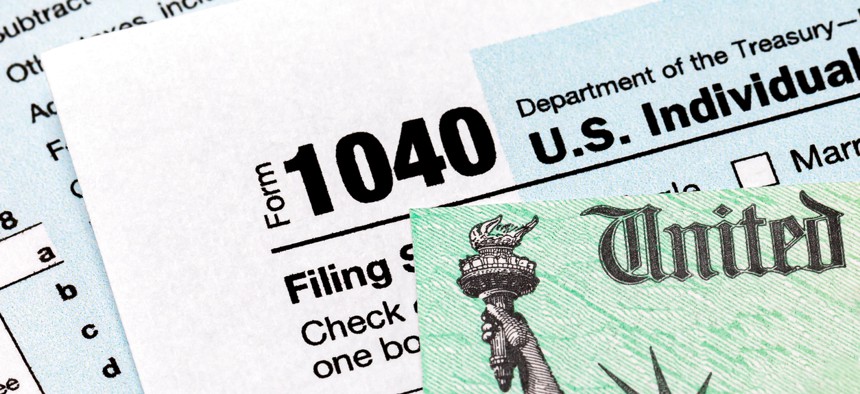
iStock.com/JJ Gouin
A Mid-Year Chance to Lower Your Taxable Income
For the second year in a row, feds get more flexibility in their flexible spending accounts.
By now, you may have been notified that during the month of June, federal employees will have another opportunity to enroll in the Federal Flexible Spending Account Program (FSAFEDS), or make midyear changes to their accounts if they’re already enrolled. This is the same type of rare mid-year open enrollment period that happened last year after the onset of the Covid-19 pandemic.
According to the Office of Personnel Management, out of more than 2 million federal employees, less than a quarter (443,334) had Health Care Flexible Spending Accounts in fiscal 2020; less than 5% (90,388) had Dependent Care Flexible Spending Accounts; and about a half of 1% (10,406) had Limited Expense Health Care Flexible Spending Accounts, which are available to employees who are enrolled in a high deductible health plan with a health savings account. By comparison, almost all federal workers are enrolled in the Federal Employees Health Benefits Program.
The funds put into an FSA are not subject to federal income or Social Security taxes, and also are exempt from most state or local income taxes. So why don’t more employees use them? One reason is that it’s difficult to estimate your out of pocket health care expenses for the upcoming year in November or December of the previous year during the regular open season period. Here’s your chance to make an election when the year is already almost halfway over.
The American Rescue Plan Act, signed into law on March 11, raised the limit on maximum contributions for pre-tax earnings to a dependent care flexible spending account from $5,000 to $10,500 (for single or married filing jointly) and from $2,500 to $5,250 (for married filing separately). Here are some things to know about the upcoming mid-year open enrollment opportunity:
- New enrollments for the 2021 plan year are allowed via FSAFEDS.com.
- All participants who have already enrolled in a 2021 HCFSA, LEX HCFSA, or DCFSA will be allowed to make a one-time change (increase or decrease) in the amount of their annual election in each FSA account in which they are enrolled. Participants can’t increase the amount of their elections in excess of annual contribution limits. Employees who decrease their election won’t receive a refund of allotments from pay they have already made to their FSA accounts.
- Funds that may have been forfeited in an HCFSA or LEX HCFSA at the end of 2020 (generally, participants are only permitted to carry over $550 to the new year) will be restored for current participants, as long as they contribute to an HCFSA or LEX HCFSA in 2021. Current participants can use the full 2020 plan year carryover amount in addition to the maximum 2021 plan year account contribution (currently, $2,750) for reimbursement of expenses incurred at any time from Jan. 1, 2021 forward. Newly enrolled participants can only utilize unused 2020 plan year carryover funds for expenses incurred following the date of their new enrollment next month.
- Under the new flexibilities, the maximum age for eligible dependent children under a DCFSA is increased from those under age 13 to those under age 14 for the 2020 plan year. All unused funds that were available at the end of 2020 can be used for an aged-out dependent child until that dependent turns 14 and for dependents who turn 13 during 2021.
- For employees who participate in a DCFSA, the March 15, 2021 grace period to use remaining 2020 funds has been extended to Dec. 31.
- If you have DCFSA funds remaining at the end of 2021, you will now be allowed to use the remaining funds to be reimbursed for eligible expenses incurred through Dec. 31, 2022.
- You don’t have to take any action to be permitted these flexibilities; the extended grace period for incurring expenses through the end of 2020 has been applied to your account automatically by FSAFEDS and will also be automatically applied for 2021.
- If you’d like to accelerate your allotments now because you are increasing your election, you can do this by logging into your online account and adjusting the number of pay periods.







